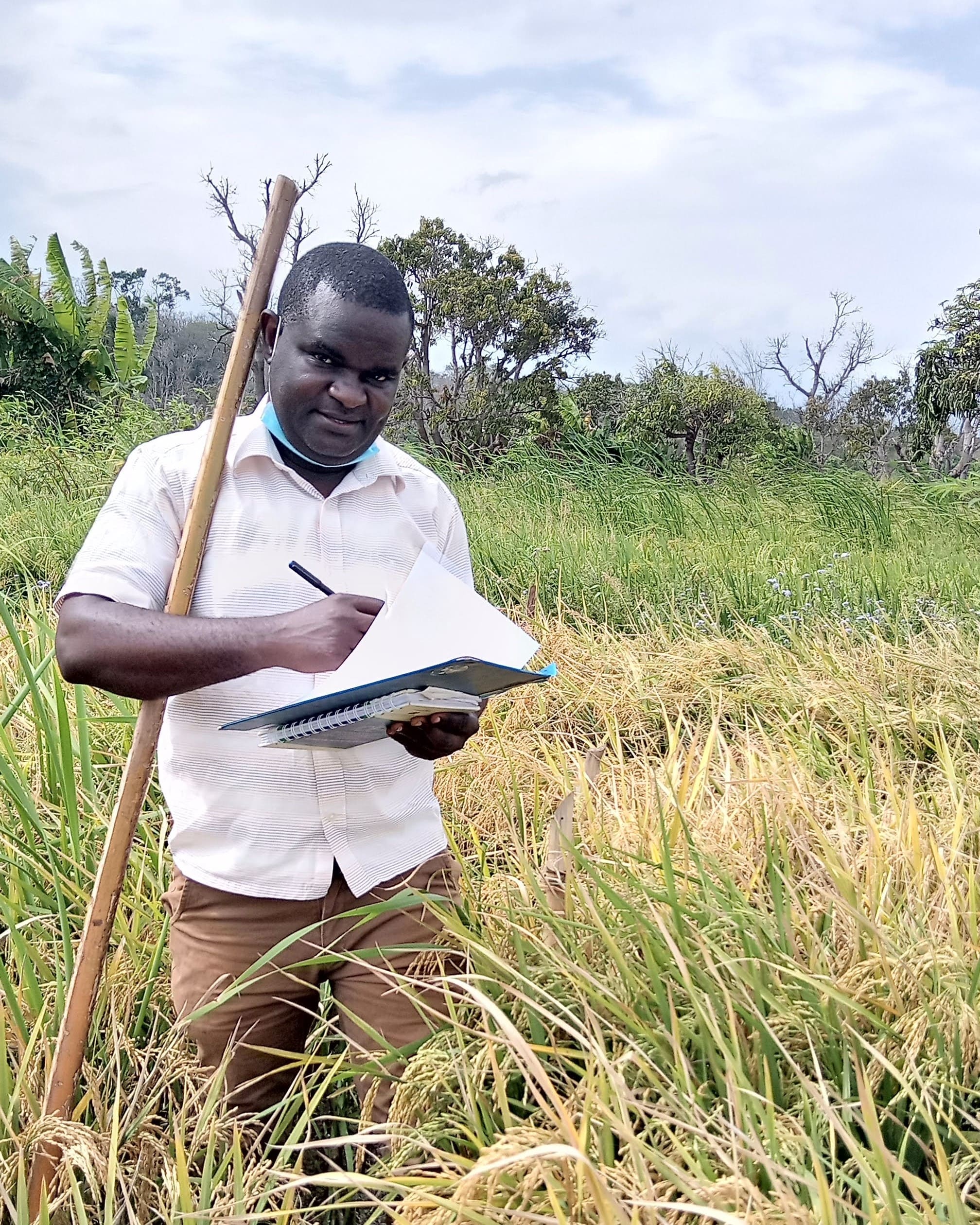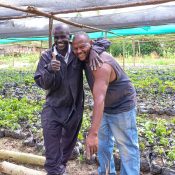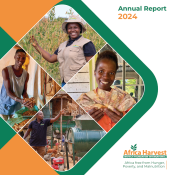
Empowering Rice Farmers
Taita Taveta County, nestled in the heart of Kenya, witnessed a remarkable transformation thanks to the collaborative efforts of the “Strengthening the Rice Sector for Poverty Reduction in East Africa” (EARiSS) project. Charles Onyango, the sub-county agricultural officer, played a pivotal role in overseeing the project from its inception to completion, witnessing firsthand the profound changes it brought to rice farming in the region.
“One of the most pressing challenges faced by rice farmers in Taita Taveta County was the dire shortage of high-quality seeds, often forcing them to resort to smuggling seeds from neighboring Tanzania.” Charles pointed out.
To address this issue, the EARiSS project introduced a game-changing solution: the Kwamboka seed variety. This variety not only offered higher yields but also boasted a faster maturation period and a delightful fragrance, surpassing the previous seed variety in every aspect.
Africa Harvest, in partnership with the Kenya Agricultural and Livestock Research Organization (KALRO), ensured easy access to these revolutionary seeds through the National Cereals and Produce Board (NCPB) depot, where farmers could purchase them at highly affordable prices.
But seeds were just the beginning. Farmers underwent comprehensive training in Good Agronomic Practices, covering essential topics such as nursery preparation, optimal seed rates, precise fertilizer application, and effective post-harvest management. This knowledge injection proved to be a game-changer, revolutionizing farming practices across the county.
The EARiSS project didn’t stop at seeds and training; it also prioritized enhancing market access for rice. Through training in contract farming and collective marketing, farmers were empowered to navigate the complex world of markets with confidence.
Additionally, with unwavering support from the county government, a rice cooperative was formed. Charles elaborated, “The registration process is currently underway and is expected to be fully operational in the near future. Farmers can join the cooperative at any time, provided they purchase shares.”
The project’s impact on rice yields was nothing short of phenomenal. Taita Taveta County became a hotspot for rice buyers, with traders traveling from far-flung areas like Ahero and Mwea to purchase rice from these flourishing farmers. Charles fondly recalled, “The demand for rice was relentless, and the increase in production lured traders from distant regions.”
Over his five years of dedication to Taita Taveta County, Charles bore witness to both direct and indirect improvements in the lives of farmers. He recounted, “In the past, interventions were limited primarily to seed distribution, often driven by the county government. However, this project was unique in its comprehensive approach, equipping farmers with transformative knowledge.”
Farmers proudly shared their success stories, from being able to pay for their children’s education without relying on county bursaries to completing their dream homes. Charles also emphasized the need for a milling machine within the county, which would significantly enhance food production.



